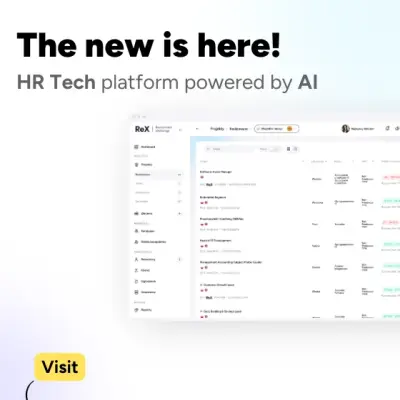Antal presents 5 effective recruitment tools and methods
Table of contents
Most often, the length of the recruitment process is about 4 weeks. It takes the longest to receive a CV from a candidate, and the most popular methods used during recruitment are: technical knowledge tests (55%), language knowledge tests (44%) and solving business tasks (40%). This is the result of the Antal report "Recruitment trends".
It would seem that a typical job interview is little more than a social interview with a certain predictable tendency. Meeting in a conference room or online, a flawless CV and standard questions: Where do you want to be in five years? What do you consider your biggest failure? What are your strengths and weaknesses? Selecting the best candidate is not easy and requires a lot of resources such as time and money. How to make a job interview successful from the point of view of the employer and the candidate? How to choose the right person for the right place and close the recruitment process successfully?
#1 Curve Ball Technique
Non-obvious questions will make candidates open up and provide honest answers. Clever candidates will be prepared for all the common interview questions and will try to find equally clever ways to turn any negative feedback into a positive one, worrying that any admission of weakness or vulnerability will count as a point against them. This strategy tends to backfire with CEOs as it makes the candidate appear less honest and trustworthy.
To go beyond learned answers, many recruiters have developed their own interview questions to better understand what a candidate is really like. Examples of such questions might be: “If everyone is 5% of the population with a unique ability, what would yours be?”, “What do you think other people most often misconstrue about you?” - says Klaudia Walentynowicz, Senior Consultant Antal, IT Services.
#2 Direct Search
Most employers start recruitment by posting job advertisements on well-known portals, this is a proven technique, but sometimes it is not very effective. Especially in the case of IT-related positions, high managerial positions or specialist Engineering positions, where there are fewer candidates on the labor market than job offers.
The answer to this situation is Direct Search. It is a technique in which recruiters contact directly people with the required skills and experience, but not actively looking for a job. Experienced recruiters and headhunters are able to reach people who themselves are not aware of the possibility and need to change jobs and would not apply for an advertisement. Direct search also has the advantage that people involved in the recruitment process are properly matched to the position - explains Aleksandra Misiak, Antal recruiter, IT Services.
#3 Assessment Center
One of the most difficult stages of recruitment is to objectively check the candidate's soft skills and behavior at work under time pressure or stressful situations. This creates a very high risk of employing a person not suited to the organization and the need to re-recruit new candidates. In this case, one of the best techniques is the Assessment Center.
During this stage of recruitment, candidates solve individual and group tasks, prepared specifically to check the key competences for a given position. During the implementation of tasks, candidates are assessed by several Assessors at the same time, which allows for a completely objective assessment of candidates' skills, and as a result, long-term and fruitful cooperation with the chosen one with "the one / the one" - explains Katarzyna Bątkiewicz, Senior Consultant Antal, IT Services.
#4 Recruitment tests and tasks and the assessment of the candidate after the interview
Technical and language knowledge tests are the most frequently used methods used during recruitment processes among employees of industries such as: advertising and PR agencies, banking, insurance, financial institutions, pharmacy, medical equipment and FMCG. A significant proportion of respondents (44%) also point to solving business cases. 42% of retail respondents note that in their organizations, the analysis of the candidate's profile on the network is as important as the technical knowledge test.
The recruitment process consists not only of a conversation between the employer and the candidate seeking employment. It is often supported by the use of additional tools. Candidates applying for jobs in the IT sector as well as banking, insurance and financial institutions may be required to conduct technical knowledge tests during recruitment. Persons who know foreign languages, looking for employment in companies from the SSC/BPO sector, undergo tests verifying the level of knowledge of a given language. In addition, people applying for a job in the area of banking, insurance and financial institutions and those who want to work in the FMCG sector often have to face the solution of an exemplary business case. The results of the above tasks definitely facilitate the decision to employ or reject a given candidate - comments Aleksandra Misiak, recruiter at Antal, IT Services.
#5 Metaverse
The Antal report “Recruitment Trends” shows that almost 40% of respondents treat the Metaverse as playing a significant role in recruiting mediums. The use of virtual reality to conduct recruitment processes may therefore, in the near future, become one of the most popular working methods in the industry. Metaverse is an online space - a virtual world in which we can undertake all kinds of activities by playing our avatar. From everyday to business. This also includes recruitment.
This is the current trend. Companies are looking for a way to optimize operations while increasing their success rate and staying competitive in the job market. The big advantage of the metaverse is the shift from linear communication, dependent on response time and one-way user interactions based on text, video and images, to real real-time dialogue. Onboarding an employee through the metauniverse can bring many benefits. Providing a new team member with an interactive onboarding platform as well as digital training materials can make it easier to find themselves in the company's structures. Predicting who will be the first to tame meta-recruitment, one can point to the area of ICT and IT specialists with great certainty. Most employees of advertising and PR agencies (58%) and FMCG (51%) are also convinced that the metaverse will play a significant role in recruitment - adds Klaudia Walentynowicz, Senior Consultant Antal, IT Services.














